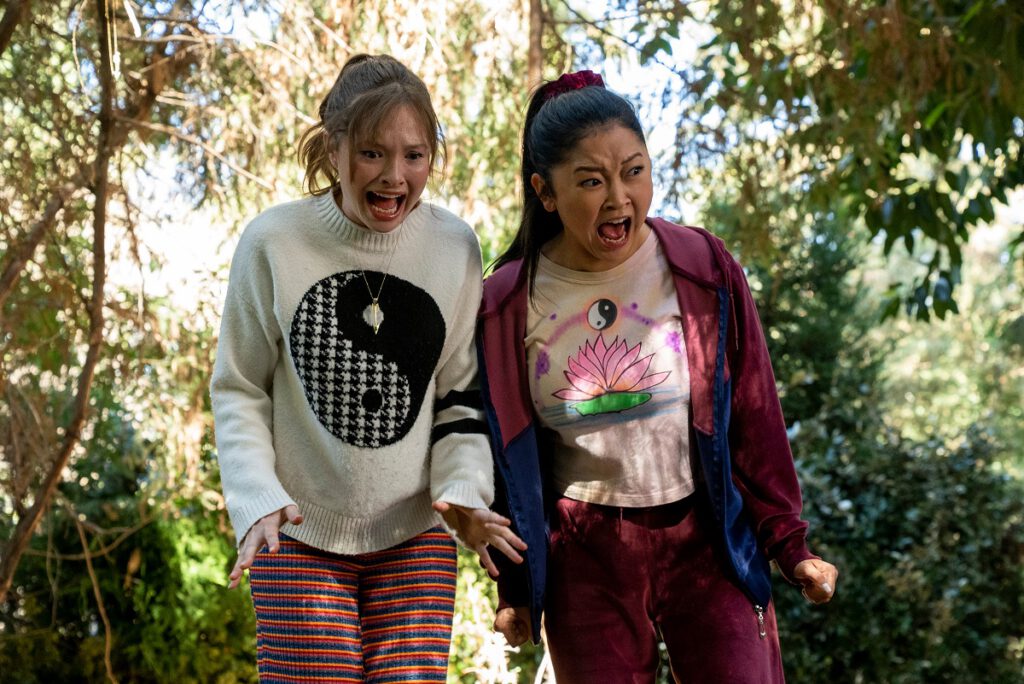Netflix’s newest Young Adult series “Boo, Bitch” is a montage of early 2000s teen film nostalgia, half-baked Gen-Z pandering, and YA book-to-movie stylization. Lana Candor leads this series as Erika Vu, a shy, nerdy high school senior down in the dumps with her best friend, Gia (Zoe Margaret Colletti), over the realization that they’re going to graduate without having had their ideal teen experience. But the night of their last-ditch attempt to enter the social scene ends with one of their deaths, turning them into a ghost. In order to exit their own personal purgatory, they must make sure they fulfill their “purpose” before fully departing: be seen, be known, be popular.
“Boo, Bitch” is rather unremarkable in its foundational aspects. Shot like any other YA series on the platform, it’s bright, vivid, and ultra digital: super-crisp visually and littered with text pop-ups on the screen. Where it does snag time to shine is in the soundtrack. One of the most current things about the show is its choice in music. From hyper-pop to indie rock, it truly feels like songs that would be on the playlists of teens today.
What seems disconnected is the elaborate acronym-speak and constant hashtags that introduce every new chapter of the show’s plot. “Boo, Bitch” feels like an attempt to pander to Gen-Zers using three TikToks and early 2000s memories as research. The way it mixes its references is sloppy, and results in the show feeling out of time.
The friendship between Erika and Gia needs to be the brick and mortar of the show, and yet Candor and Colletti lack believable chemistry. Regardless of scripted heartfelt moments and inside jokes, every moment between the two is like watching them run lines. There’s no escapism to be had in “Boo, Bitch,” because everything is constantly dialed to eleven. In a show about ghostly purgatory, suspension of disbelief is to be expected, but only in the plot, not the performance.

While it is typical, and sometimes even effective, to rely on overacting in teen comedies, there are no notable moments of emotion to bring the levels back into relatability. Even the show’s lead villain, Riley (Aparna Brielle), is a Regina George knockoff without the depth of character. The standout is Mason Versaw as Jake C., the heartthrob boy toy caught in the middle of a love triangle.
Versaw’s performance fluctuates with genuineness while the others hop and skip with machine-like quality from moment to moment. Of course, the willingness to fall into tropes on “Boo, Bitch” is not purely a flaw to be put on the heads of the actors and their direction. It’s in the DNA of the script, from the way the plot advances to the dialogue itself.
To be fair, “Boo, Bitch” does consider the daunting nature of a life in transition and the fear of entering adulthood with a youth left incomplete. It utilizes the traditional, if not clichéd, hierarchy of high school to plant seeds of measuring the meaningfulness of existing friendships versus idealized ones. But these notions are fairly common knowledge to any adult watching, leaving the impact of this positive notion to be washed away by the sloppy waves of lackluster performances and spotty writing.
Whole season screened for review. Now on Netflix.












